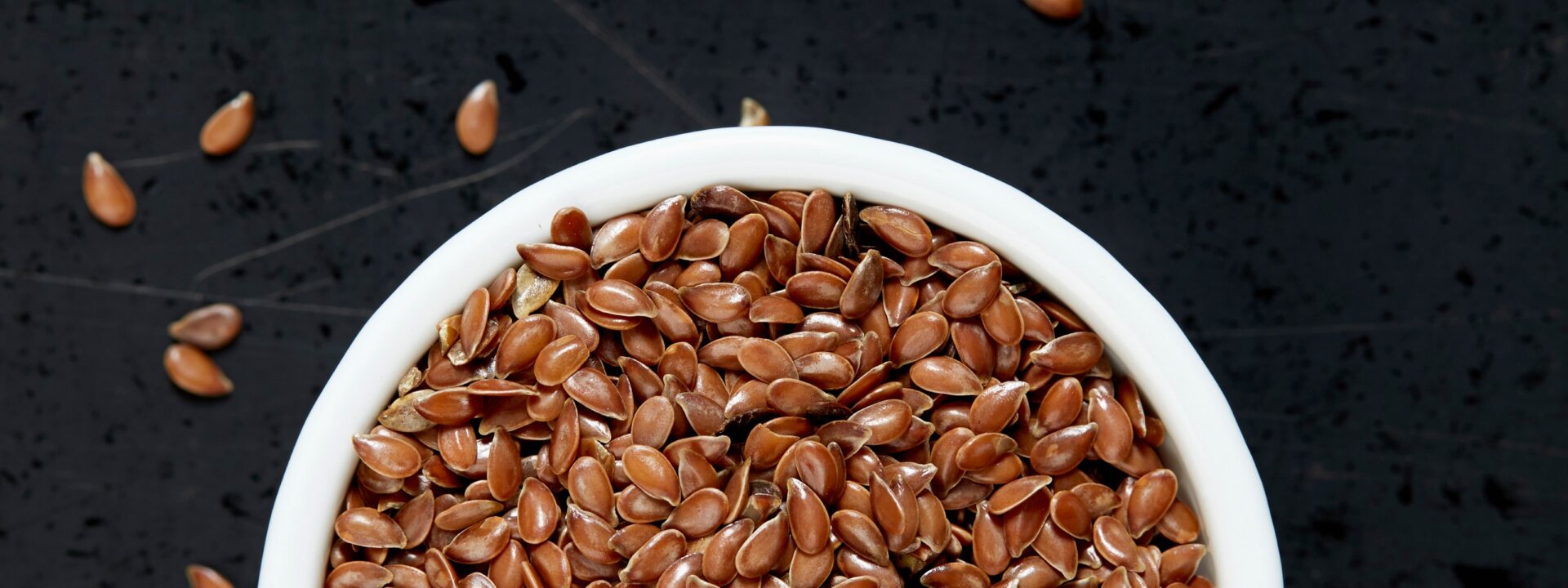For optimal health, there’s one food you shouldn’t overlook—it’s affordable, easy to find, and incredibly nutritious. Best of all, it requires no cooking.
Meet flaxseed, a true superfood. “These tiny seeds are the unsung heroes of the plant world,” says Jennifer Scheinman, a registered dietitian. “They’re a nutritional powerhouse.”
And she’s not exaggerating—research shows flaxseeds offer numerous benefits, including better digestion, improved heart health, and reduced risk of certain cancers, obesity, and diabetes. They may even help ease menopausal symptoms, including digestive discomfort. But that’s not all: Flaxseeds are so nutrient-rich that some people even use them in DIY beauty treatments for skin and hair. One viral TikTok claims, “This is homemade Botox—just flaxseeds and water. It doubles as a natural shampoo!”
While comparing flaxseeds to Botox might be a stretch, there’s no denying their health benefits, especially when eaten. So what exactly are flaxseeds, how should you use them, and what makes them so good for you? Here’s what experts say.
### What Are Flaxseeds?
Flaxseeds come from the flax plant. They’re small—similar in size to sesame seeds—and come in golden or brown varieties. Fun fact: Humans have cultivated flax for thousands of years for its seeds, oil, and fibers (linen fabric is made from flax stems).
### Health Benefits of Flaxseeds
Flaxseeds are packed with fiber, lignans, antioxidants, and essential nutrients like thiamine and magnesium. They’re also one of the few plant sources of omega-3 fatty acids, which help lower cholesterol and reduce heart disease risk. “Flaxseeds provide nutrients many Americans lack,” says Scheinman.
Beyond general nutrition, flaxseeds support specific bodily functions. “Many benefits come from how flaxseeds interact with the gut microbiome,” explains dietitian April Panitz. “Their fiber content helps lower cholesterol and triglycerides by reducing fat absorption and increasing fat excretion.”
### Flaxseeds for Digestion
Flaxseeds contain a unique type of soluble fiber called mucilaginous gum—the same slimy texture you see when soaking them in water. “This gel-like fiber promotes fullness and aids weight management,” says Panitz.
They’re also rich in insoluble fiber, which adds bulk to stool and helps relieve constipation. Plus, their fiber feeds beneficial gut bacteria, supporting overall digestive health.
In short, flaxseeds are a simple, versatile way to boost your diet—no cooking required.Flaxseeds Support Gut Health and Overall Wellbeing
“Flaxseed fiber feeds beneficial gut bacteria,” says Panitz. “Along with its high levels of ALA omega-3 fatty acids, it helps balance gut bacteria, promoting strains that support gut lining health. This improves insulin sensitivity, slows disease progression (including cancer), and reduces inflammation.”
Lignans, another plant-based compound linked to fiber, offer additional benefits. “When gut bacteria break down flaxseed lignans, they produce phytoestrogens, which may lower the risk of breast and ovarian cancers, endometriosis, and ease mild menopausal symptoms like hot flashes and vaginal dryness,” Panitz explains. “These lignans also act as antioxidants, protecting the body from free radical damage.”
In short, flaxseeds aren’t just great for gut health—they support overall wellness.
### How to Eat Flaxseeds
Adding flaxseeds to your diet is simple, and you don’t need much to see benefits. “Just one to two tablespoons a day provides most of flax’s health perks,” says Scheinman. “They’re perfect for a longevity-focused diet.”
She recommends blending them into smoothies, sprinkling them on yogurt or oatmeal, or mixing them into baked goods. Thanks to their moisture-holding ability (from their natural gum content), they can even replace eggs in baking: “Mix one tablespoon of ground flax with three tablespoons of water and let it sit for a few minutes.”
Panitz suggests using flaxseed as a flour substitute: “Replace up to half the flour in cakes, breads, or muffins with flaxseed.” You can also swap breadcrumbs for ground flax in meatballs or veggie burgers.
Just remember: Fiber works best with plenty of water. “Increase your fluid intake when adding more fiber to your diet,” Panitz advises.
### Ground or Whole?
Both experts agree—ground flaxseeds are better. “Our digestive system struggles to break down whole seeds, so they pass through without releasing all their benefits,” Scheinman explains. “Grind whole flaxseeds in a coffee or spice grinder for maximum absorption.”
Since flaxseeds contain oils that can spoil, store them in an airtight container in the fridge to prevent rancidity.
### Beauty Benefits
Flaxseeds may also improve skin health. One study found that daily flaxseed oil consumption reduced skin sensitivity and boosted hydration in just 12 weeks, leading to smoother, less irritated skin.
As for topical use—like those viral flaxseed hair masks—research is limited, but some early results are promising.Research on omega-3 fatty acids from fish oil—which share many similar properties—shows promising results for skin health. While clinical trials on topical applications are still limited, one recent study found that omega-3s can enhance skin barrier function, reduce UV-induced inflammation and dark spots, soothe dry skin and itching from dermatitis, speed up wound healing, and even help prevent skin cancer. These benefits can be achieved through various application methods, including direct skin use.
For hair, applying a paste of ground flaxseed and water may add moisture and possibly encourage growth. One study suggests flaxseed oil’s lignans could help with hair loss, while another found omega-3s promoted hair growth in rodents. However, flaxseed oil molecules are larger than other oils, making absorption into skin or scalp less effective. Eating flaxseeds may be more beneficial than applying them topically.
Nutritionist Panitz notes that while flaxseeds offer impressive health benefits, no single food can fix everything. “A varied diet of fruits, vegetables, whole grains, lean proteins, and healthy fats remains the best way to meet nutrient needs and lower disease risk,” she says. Think of flaxseeds as a small but valuable addition—”the cherry on top of an already balanced diet.”
SAINT LAURENT
Double-breasted Wool Blazer – Ivory
$3,790 at Net-a-Porter
SAINT LAURENT’s tailoring is always flawless. This wool blazer features a longline, double-breasted cut with structured peak lapels and padded shoulders. The silk-satin lining ensures effortless layering.
